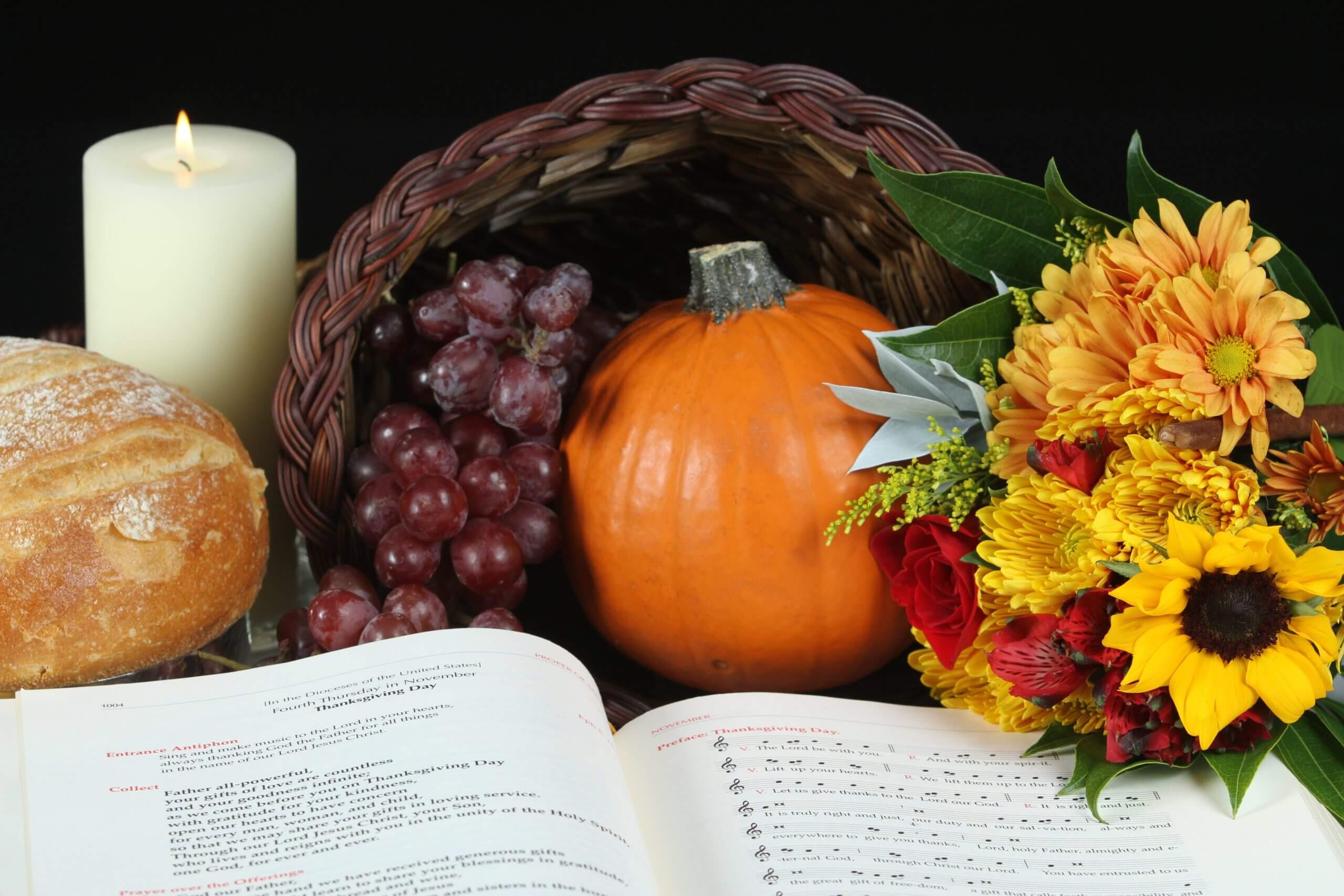
A new Thanksgiving meaning
Thanksgiving will soon be upon us with its cornucopia of beloved traditions – from pilgrim scenes to turkey, pumpkin pie, parades and football.
On Nov. 24 millions of people across America will pause from their regular weekday routines, we Little Sisters included.
But how will we choose to spend the day? As believers there is much we can celebrate this Thanksgiving without getting caught up in historical retellings, political debates or even football.
Looking back at a different page of Thanksgiving history, I learned that when George Washington proclaimed the first national celebration of Thanksgiving in 1789, he didn’t even mention the events of 1621.
He called for Americans to devote the first Thanksgiving “to the service of that great and glorious Being, who is the beneficent Author of all good that was, or that will be.”
Washington asked Americans to unite in giving God sincere and humble thanks for His kindness and protection, for His Providence and manifold mercies and for “the great degree of tranquility, union and plenty” that they enjoyed.
Sincere and humble thanks for God’s mercies and providential care, and for the relative peace and plenty that we enjoy – aren’t these things we can all celebrate? This is not to say that our lives or our nation are perfect – far from it.
But despite a worldwide pandemic — a conflict that Pope Francis is calling a third world war — an international food crisis, natural disasters and ecological threats throughout our planet, we are still here.
Our lives are in God’s hands and our every breath flows from His provident love. Let us thank Him for our blessings, however small we may believe them to be.
Even as we thank God, there is something else we can do this Thanksgiving – let’s ask ourselves how we might pay it forward by sharing our blessings with others.
The Collect, or opening prayer for the Mass to be celebrated on Thanksgiving proposes just this: “Father all-powerful, your gifts of love are countless and your goodness infinite; as we come before you on Thanksgiving Day with gratitude for your kindness, open our hearts to have concern for every man, woman, and child, so that we may share your gifts in loving service.”
Before we sit down to our Thanksgiving feasts let’s mark the day spiritually by attending Mass, praying the Psalms of thanksgiving (Psalms 113-118), or at the very least, pausing with loved ones to give voice to our blessings, despite our difficulties.
And then let’s decide together how we might show “concern for every man, woman and child” in some concrete way, especially during the upcoming Advent and Christmas seasons.
As I was reading up on the history of Thanksgiving, I discovered another moving document, this one penned by Gershom Medes Seixas, the spiritual leader of New York City’s first Jewish congregation and a contemporary of George Washington.
In response to Washington’s 1789 proclamation, Seixas preached to his congregation, “Let me recommend to you a serious consideration of the several duties already set forth this day: to enter into a self-examination; to relinquish your prejudices against each other; to subdue your passions; to live, as Jews ought to do, in brotherhood and amity; to seek peace and pursue it. So shall it be well with you both here and hereafter.”
Is this not how we all ought to live?
Rabbi Seixas thus issues another challenge this Thanksgiving – to let go of our prejudices and pursue peace and amity, first with our brothers and sisters in the household of the faith and then with all.
As we do so, let us offer our prayers, works, joys and sufferings to God so that he may use them, according to His will, as a lever to lift up this troubled world and restore life, liberty and the pursuit of happiness to all.
—Sister Constance Veit is the communications director for the Little Sisters of the Poor in the United States and an occupational therapist.

